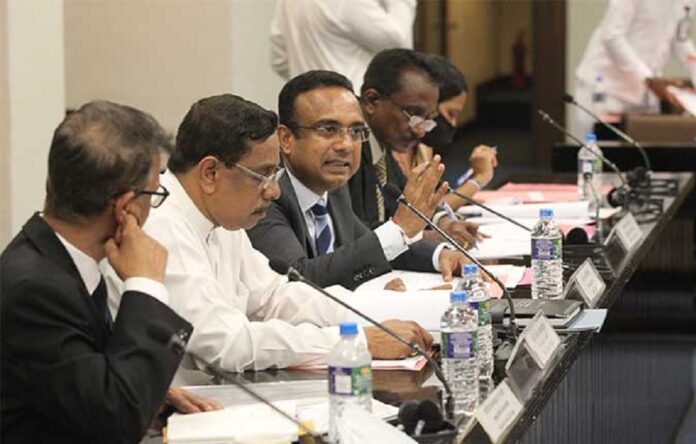By: Staff Writer
Colombo (LNW): A new integrated labour law to encourage foreign investment is due shortly replacing Labour and Foreign Employment Minister Manusha Nanayakkara this week revealed that.
The Labour Department expects to introduce a simple and a unified labour law to the country by the end of 2023 to facilitate and encourage new entrepreneurs
Speaking at the Ministerial Consultative Committee on Labour and Foreign Employment Affairs Nanayakkara also said that taking opinions and suggestions of all relevant parties including the public will be started from 2 May to formulate this integrated labour law.
He further pointed out that the country’s industrial law, which is currently scattered and complex, is expected to be converted into an integrated labour law, and it is an essential step to encourage local and foreign investors. Thus, the new consolidated law will facilitate the settlement of disputes between employers and employees.
The Minister also said that these new laws will facilitate the convenient start and running of business activities, especially for investors coming to Sri Lanka.
This is in line with the proposal made by President Ranil Wickremesinghe through Budget 2023 to enact a new, updated and unified labor law in a manner to benefit both employer – employee segments and the economy.
According to the ministry, the department has concluded the preliminary discussions on updating and revising the existing labor laws by now.
Currently, there are over 40 labour laws in force in Sri Lanka out of which only 19 are being actively used for the matters pertaining to the labourers.
The contradictions and clashes among some of these laws has caused delays to the process and also discouraged the new entrepreneurs.
Addressing the Ministerial Consultative Committee meeting, Labour and Foreign Employment Minister Manusha Nanayakkara stated that steps will be taken to prepare the new integrated labour law to avoid the complexities of the existing labour law.
The attention of the committee was also paid to businesses that are not registered in the Employees’ Provident Fund (EPF).
The Minister pointed out that only 80,000 business companies are registered in the Employees Provident Fund. The MPs stressed that immediate action should be taken against unregistered companies.
Accordingly, it was decided to inform all divisional secretaries and local government commissioners in writing to send information about businesses registered in different parts of the island to the Ministry of Labour.
Also, the Minister instructed the Department of Labour and the Employees’ Provident Fund to submit a plan of possible future actions against such companies within a month.

